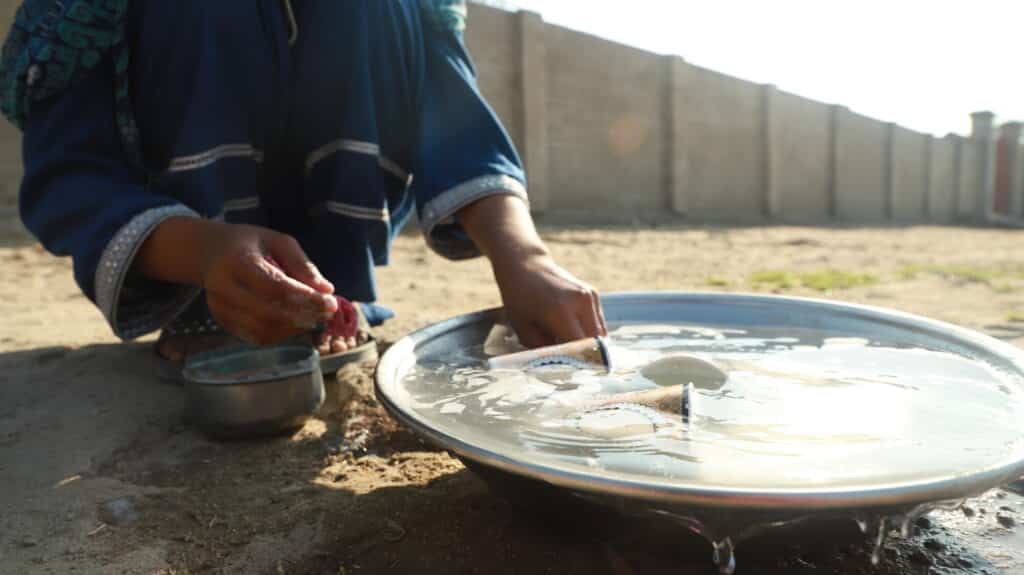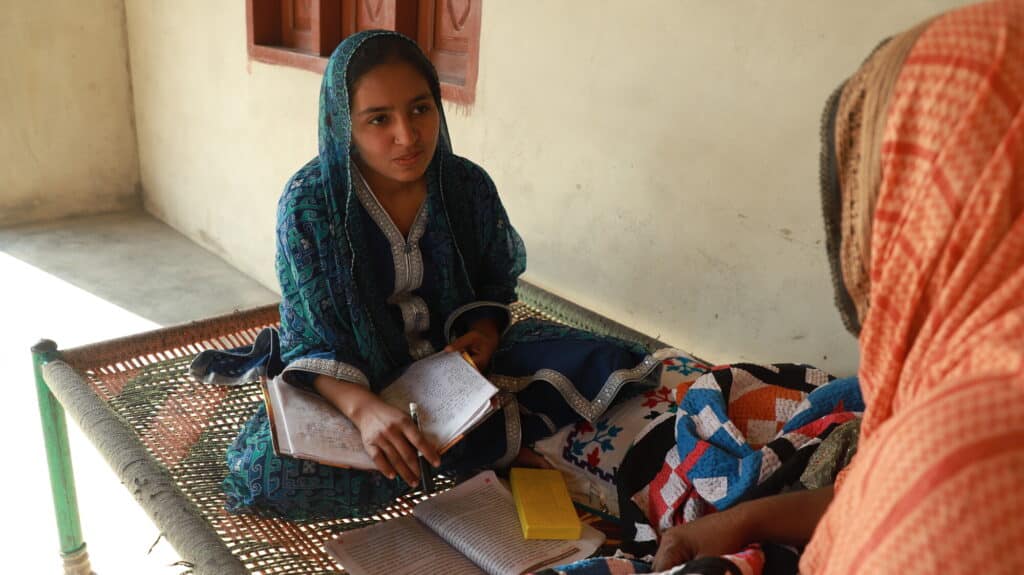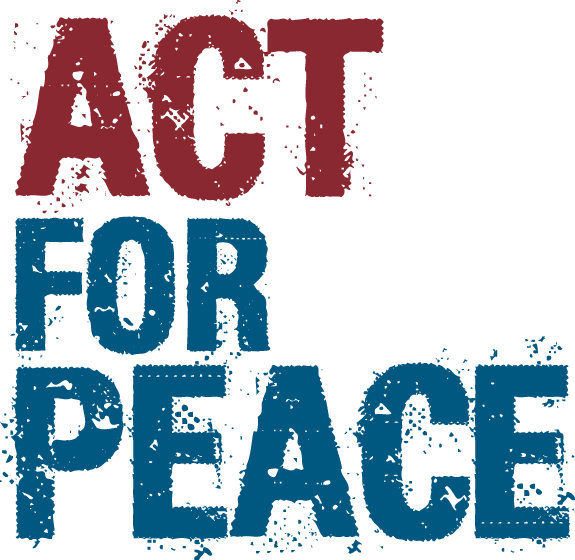According to the Pakistani non-governmental healthcare organisation, Sehat Kahan, over half the population doesn’t have access to basic primary healthcare services. Pakistan’s child mortality rate is high – 61 in every 1,000 children die before the age of five.
Less than 60% of children complete primary school. And 18% of girls are married before the age of 18. According to the World Bank, 40% of Pakistan’s population was estimated to be living below the poverty line in 2023.
The immediate impact of aid cuts
With widespread poverty and severe barriers to accessing education and healthcare, the impacts of recent global humanitarian aid cuts are catastrophic.
At the end of February 2025, CWSA reported that just one month after the USAID cuts the following impacts were experienced in Pakistan:
- 22 organisations working on democracy, education and minority rights, advocacy, were directly affected, leading to project closures.
- $US845 million in aid projects suspended.
- 7 million people cut off from lifesaving sexual and reproductive health services.
- 2 million Afghan refugees cut off from lifesaving health services.
- 60 health facilities closed.
CWSA also reports the following:
- A 38% funding reduction.
- The shutdown of three offices in Pakistan, including the Lahore office, which had been operational for over 25 years.
- The loss of 32 staff members, including long-serving employees.
- The discontinuation of key programs, including those focused on minority rights, women’s empowerment, youth engagement, and education.
- Over 55,000 people, including Afghan refugees, women, and children, are now at risk of losing access to essential healthcare, education, and community support services.
The human cost of aid cuts
“Many women and children won’t have access to basic health care. That’s really very concerning, especially for the elderly, for women who are expecting, or women who have small children,
“A lot of our health care programs run by the government are supported by foreign funding, so there is potential that our whole healthcare system can collapse.”
~ Shama Mull, CWSA’s Regional Director for Programs and Organisational Development
And for community members who rely on these services, the impact is severe.
“Since the last two years, I’ve been receiving free medication and treatment from the CWSA supported MNCH (Maternal and Child Health) Centre,” says a community member who was impacted by floods in 2022).
“The quality of their services and the medicine provided is excellent. We’ve been benefiting from these health interventions since its inception in our district. If we lose access to these free health services, we’ll be at a big loss.
“My husband and I are unemployed and live below poverty, struggling to make ends meet for our children. Medicines and healthcare are expensive, and without this support, families like ours will suffer greatly.”
And it’s not just the immediate impact, CWSA is also concerned about the deeper humanitarian consequences and the threat of derailing the progress forged after decades of hard-fought, community-focused work.
“It’s all the effort that organisations like us put in terms of social mobilisation, working with communities, getting their support, getting them to take leadership on changing these mindsets around girls’ education,” explains Shama.
“We put years and years of effort into building those relationships with the local communities… But when something like this happens, and everything stops abruptly, it affects the trust of communities in organisations like us.”
“We’ve achieved significant milestones when it comes to the legislative environment and changes in Pakistan pertaining to religious minorities and women. We’ve done so much work around that advocating for legal, social and political rights.”
However, Palwashay Arab, CWSA’s Head of Communications and Gender Justice Spokesperson says all of that progress could be reversed.
A Call for Continued Support
“A lot of the progress that we’ve had in the past years will regress because this sort of work requires constant and consistent advocacy,” says Palwashay.
“The dismantling of the village committees that we’ve set up for engagement of communities keeping them informed, ensuring that they’re working with the communities, getting their feedback, getting their participation on girls’ education or girls rights or awareness on early child marriages. All of these things have completely come to a stop.”
~ Palwashay Arab, CWSA’s Head of Communications and Gender Justice Spokesperson
In these extremely challenging times, CWSA is urging caring Australians to continue their financial and advocacy support to prevent further humanitarian crises. And to help sustain critical services for vulnerable communities in Pakistan.
“Financial contributions are obviously welcome at this point to help bridge the funding gap, and that needs to be conveyed very simply and clearly,” says Palwashay.
“Putting faces to these issues or these stories… telling those stories of how the support that has been coming from Australia has changed people’s lives—and that must continue,” says Shama.
Hope for the future of girls’ education
It’s a long road ahead for CWSA. Act for Peace is committed to joining forces with our generous supporters in the hope that critical programs can continue to provide life-changing support for people in need in Pakistan.
For example, the girls’ education program which ensures girls like Yasmin* have the opportunity to go to school.

“There were no equal opportunities. Boys were encouraged more to get an education,” says Yasmin.* “I used to think that I would do household chores like the other girls in my village,” says Yasmin.
“We worked in the fields, and were married off early, which is why they weren’t allowed to study.”

However, generous supporters like you have helped changed that, providing the support for CWSA to work in Yasmin’s community, improving education opportunities and changing cultural mindsets, by encouraging parents to see the value of education for girls.
“A lot has changed,” says Yasmin. “Now, girls have gained a lot of confidence, and they also want to study. I am very grateful to the Australian supporters for providing education in our school. Because of this, all the girls have started studying. I want to become a doctor.”
Thank you for providing hope so girls like Yasmin can go to school and hope for a brighter future.
Act for Peace today. Give a financial gift so our partners, including CWSA, can continue providing vital humanitarian programs to people who need it most.
How you can help
Advocate
Join us in advocating for our government to do more for people who need our help the most. Write to you MP voicing your support for Australian Aid (by clicking Advocate button below).
Spread the word to your friends and community and get them to do the same.
Give
Support our local partners to continue providing life saving humanitarian programs by making a donation.
Your gifts will provide them with vital support to continue providing humanitarian programs.
Pray
Please pray for a return of empathy for humankind. Pray for the communities affected by aid cuts and for the humanitarian workers who have lost their jobs.
Pray for the future of humanitarian programs and for sustainable funding.
